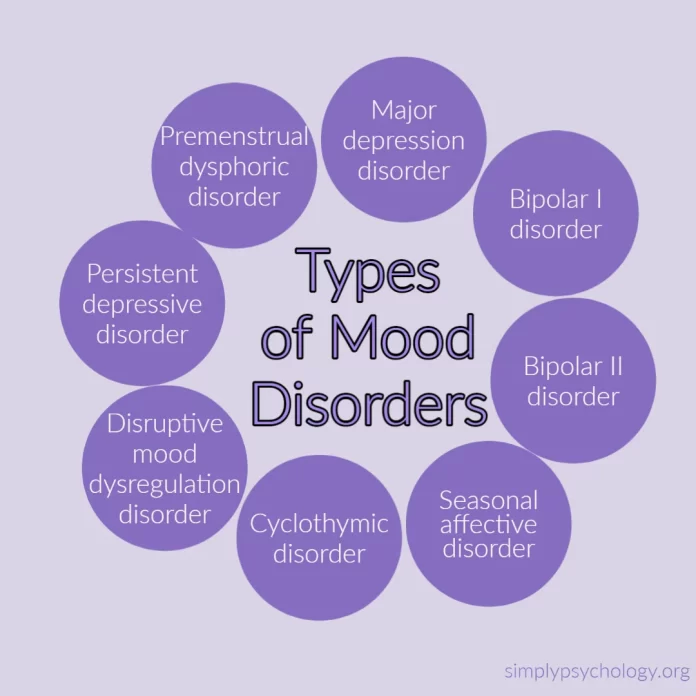Understanding Mood Disorders: Mood disorders, including depression and bipolar disorder, affect millions of individuals worldwide, impacting their emotional state, behavior, and overall quality of life. Understanding the causes and exploring prevention strategies is crucial for managing these conditions effectively.
Causes of Mood Disorders
Mood disorders are complex and arise from a combination of genetic, biological, environmental, and psychological factors.
Genetic Factors
Genetics play a significant role in mood disorders. Family history of depression or bipolar disorder increases an individual’s risk. Research suggests that certain genes may influence the likelihood of developing these conditions, though no single gene is responsible.
Biological Factors
Biological imbalances in brain chemicals, such as neurotransmitters (e.g., serotonin, dopamine, and norepinephrine), are linked to mood disorders. Hormonal changes, particularly during puberty, pregnancy, or menopause, can also affect mood regulation. Brain structure and function abnormalities have been observed in individuals with mood disorders, though the exact mechanisms remain complex and not fully understood.
Environmental Stressors
Life events and stressors are significant contributors to mood disorders. Traumatic experiences, such as abuse or the loss of a loved one, can trigger or exacerbate these conditions. Chronic stress from work, relationships, or financial problems can also play a role.
Know these six modifications it the health insurance claim rules
Psychological Factors
Cognitive patterns, such as persistent negative thinking or low self-esteem, can contribute to the development of mood disorders. Individuals who struggle with maladaptive coping strategies or have a history of emotional trauma are at higher risk.
Lifestyle Factors
Unhealthy lifestyle choices, including poor diet, lack of exercise, and inadequate sleep, can impact mood. Substance abuse, including alcohol and drugs, can also be both a cause and a consequence of mood disorders.
Prevention Strategies
While mood disorders are multifaceted and not always preventable, several strategies can help mitigate the risk and manage symptoms effectively.
Healthy Lifestyle Choices
Maintaining a balanced diet, engaging in regular physical activity, and ensuring adequate sleep can support overall mental well-being. Regular exercise, in particular, is known to boost mood and reduce symptoms of depression and anxiety.
Stress Management
Developing effective stress management techniques, such as mindfulness, meditation, and relaxation exercises, can help individuals cope better with life’s challenges. Building resilience through problem-solving skills and social support also plays a key role.
Therapeutic Interventions
Cognitive-behavioral therapy (CBT) and other therapeutic approaches can help individuals identify and alter negative thought patterns and behaviors. Early intervention with professional support can be crucial in preventing the escalation of mood disorders.
Social Support
Building and maintaining strong relationships with family, friends, and support networks can provide emotional stability and reduce feelings of isolation. Engaging in community activities and support groups can also be beneficial.
Regular Health Check-ups
Regular consultations with healthcare providers can help monitor and manage potential risk factors for mood disorders. Addressing physical health issues and seeking timely treatment for symptoms can prevent further complications.
Education and Awareness
Educating individuals about the signs and symptoms of mood disorders can lead to early recognition and treatment. Awareness campaigns and mental health education can help reduce stigma and encourage those affected to seek help.
Conclusion
Mood disorders are complex conditions influenced by a range of genetic, biological, environmental, and psychological factors. While it may not be possible to completely prevent these disorders, adopting healthy lifestyle habits, managing stress effectively, seeking therapy, maintaining social support, and staying informed can significantly reduce the risk and impact of mood disorders. Early intervention and ongoing support play vital roles in managing symptoms and improving overall quality of life






























